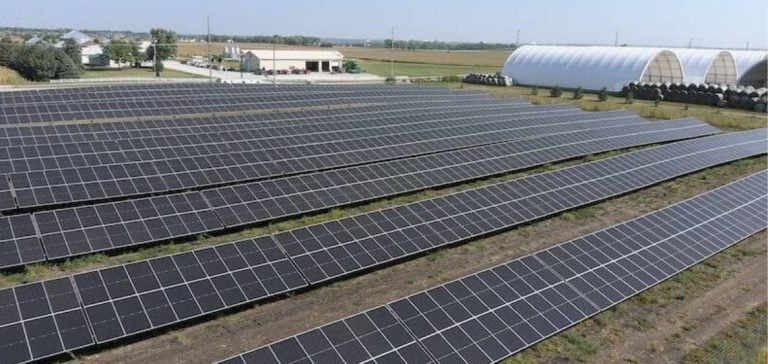The Iowa Energy Fund (IEF) is now operational.
Created to meet the financial challenges of clean energy and energy efficiency projects, the IEF is positioned as a key player in the state’s energy transformation.
By accessing federal funding from the Inflation Reduction Act, local financial institutions, businesses and municipalities have a new platform to accelerate their investments.
These funds are aimed at developing local infrastructure, reducing energy costs for residents and supporting an increase in the supply of affordable housing.
The IEF stands out for its ability to combine public and private funds to maximize the impact of investments in Iowa’s economy, while also reducing the State’s carbon footprint.
A platform for accessing federal funds
IEF provides local banks and community organizations with access to often complex financing, facilitating the development of renewable energy and energy efficiency projects.
Its role is to guide the various players through the administrative procedures involved in obtaining financing, and to ensure that projects receive the resources they need to succeed.
IEF support also gives local companies a competitive edge, enabling them to focus on implementing innovative solutions, while benefiting from a clear and structured financing framework.
Partnerships with community banks, such as People’s Bank, testify to this desire to stimulate the local economy by directing funds towards concrete, high value-added projects.
IEF is not just about energy; it’s also about stimulating economic development, modernizing local infrastructure and improving energy efficiency in buildings.
This includes major renovations to homes and commercial buildings, reducing energy bills and boosting the competitiveness of the real estate sector.
Concrete impacts for Iowa
The projects supported by IEF contribute directly to the decarbonization of the state, by optimizing the use of renewable energies and reducing dependence on fossil fuels.
IEF acts as a facilitator, linking public and private players to transform available funding into concrete projects.
Thanks to this support, players in the energy and real estate sectors can integrate more sustainable solutions into their operations.
This approach is part of a wider dynamic of energy transition, accompanied by increased investment and a growing demand for technical expertise.
By structuring its actions around partnerships, IEF enables better coordination between the various local players.
The aim is to ensure that clean energy projects are rapidly implemented and that their economic spin-offs benefit the whole of Iowa.
This applies in particular to rural areas and low-income households, which are often the hardest hit by high energy costs.
The investments generated by the IEF are therefore not limited to a simple reduction in carbon emissions, but contribute to strengthening the state’s energy resilience while stimulating the local economy.
A national model with local benefits
IEF is part of a larger initiative, the Green Bank 50 (GB50), a national partnership of green banks across the United States.
This framework enables resources to be pooled, best practices to be shared and projects to be monitored on a national scale.
The aim of GB50 is to provide technical and financial support to regional players, while facilitating coordination between states and local players.
This integrated approach enables green banks to benefit from a common framework, while adapting their actions to local specificities.
As a state benefiting from this initiative, Iowa’s investment capacity has been strengthened, with a direct impact on local economies.
As part of this national dynamic, IEF provides its partners with cutting-edge expertise, simplified access to funds, and better coordination of projects at local level.
This not only strengthens Iowa’s economy, but also positions the state as a leader in the energy transition.
Taken together, these actions reflect a commitment to creating a sustainable financial model that supports energy innovation while generating tangible economic benefits.
As a catalyst, the IEF helps accelerate the energy transition while maintaining a pragmatic approach focused on the State’s economic realities.






















